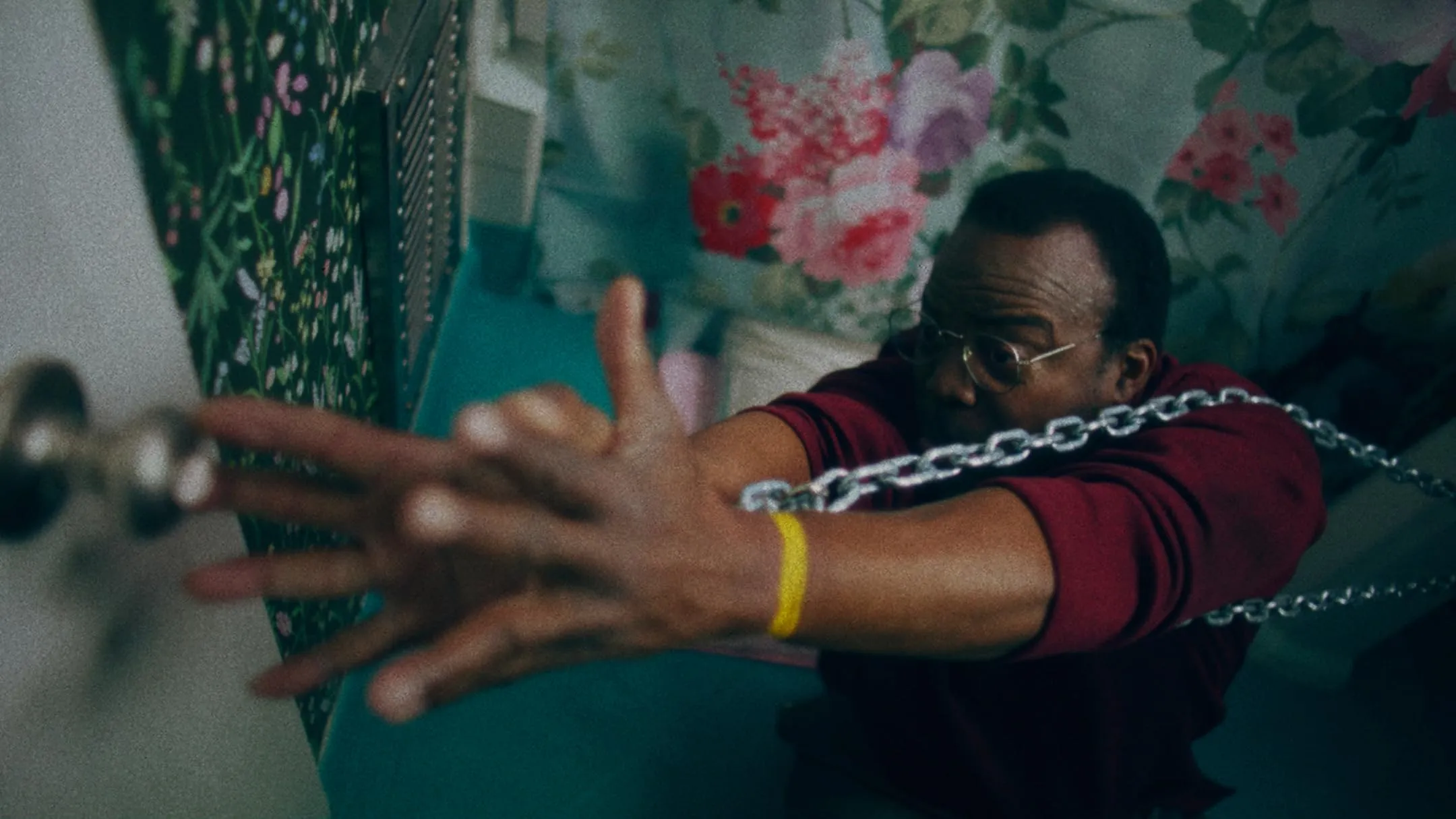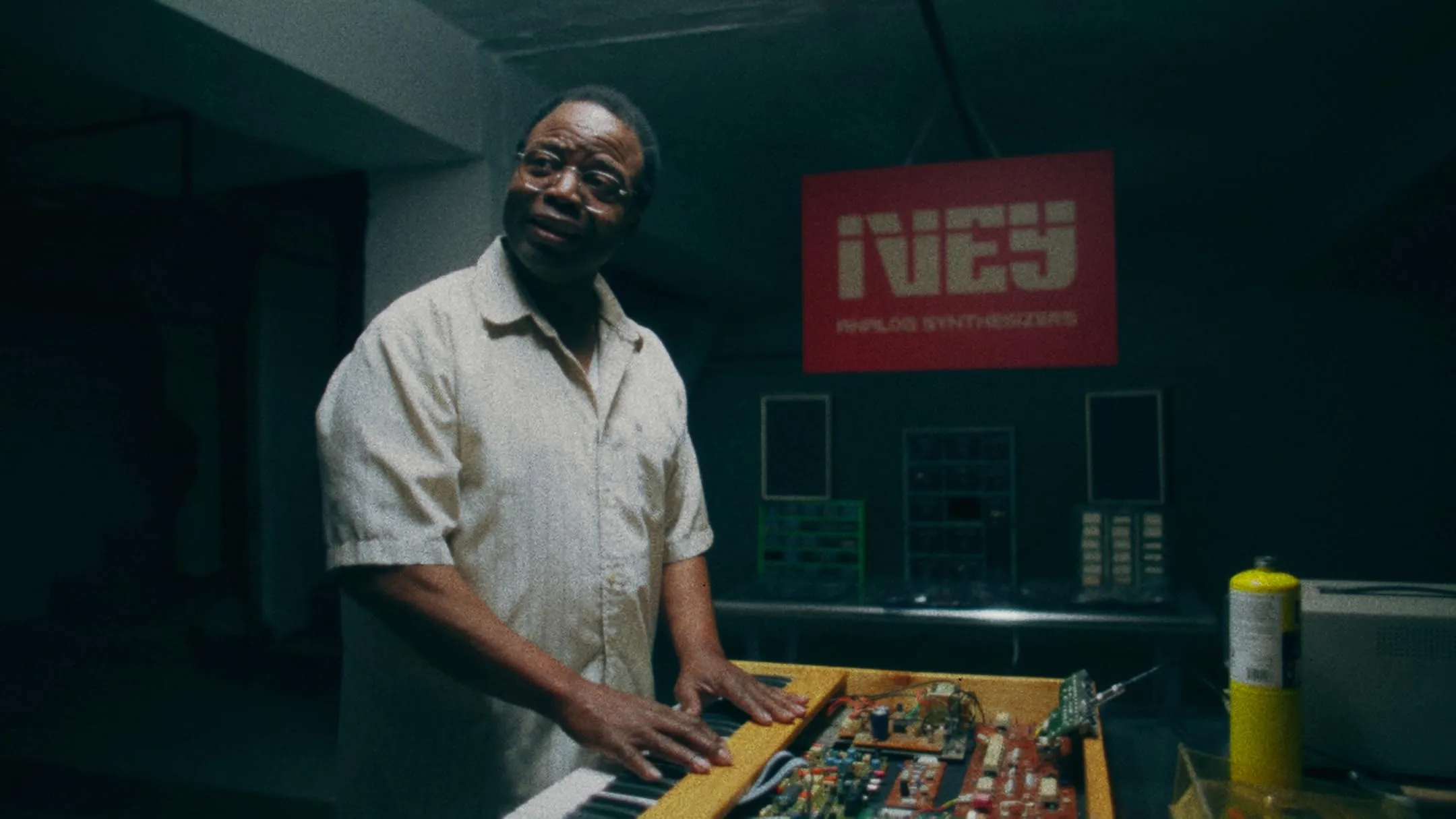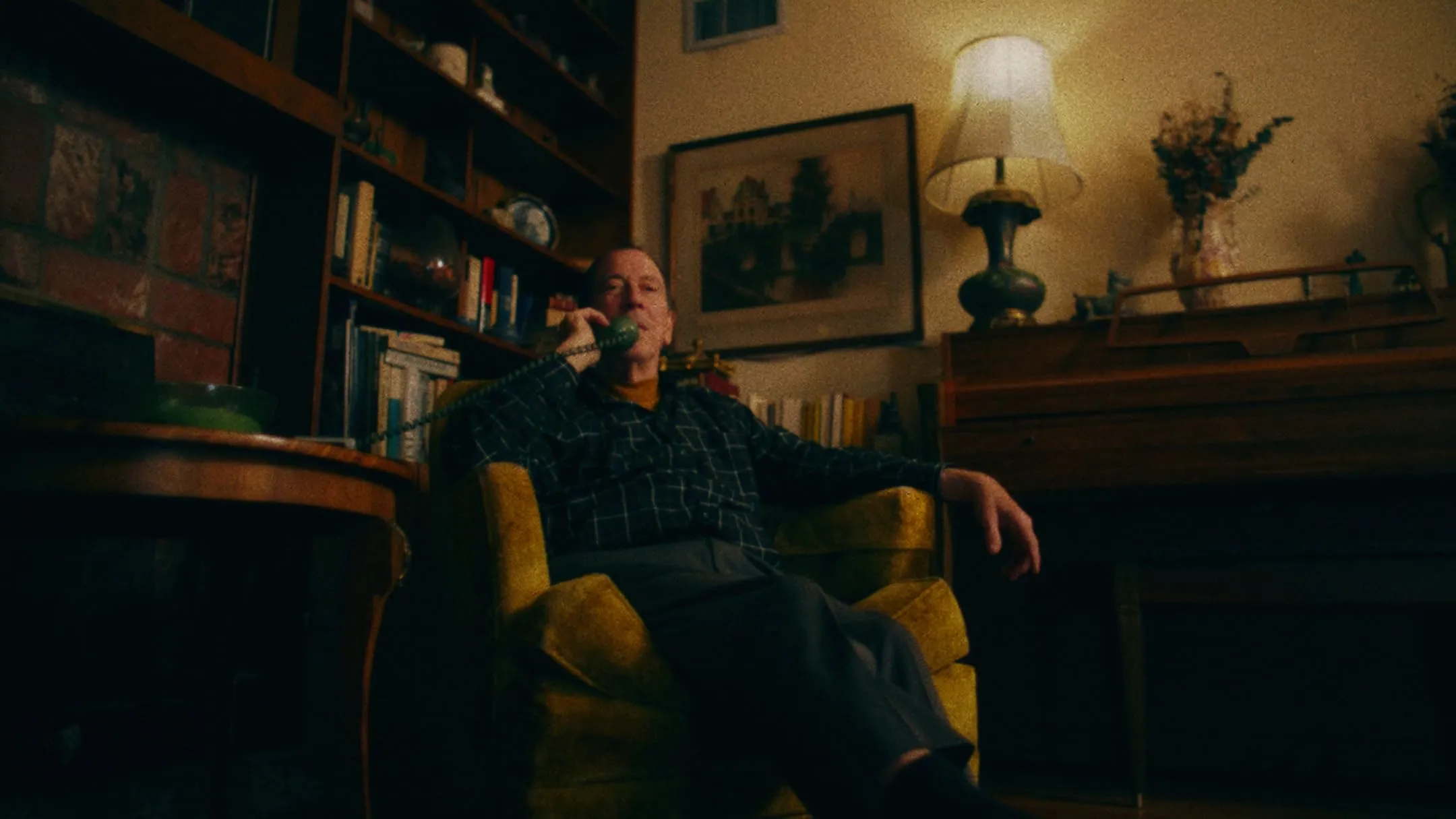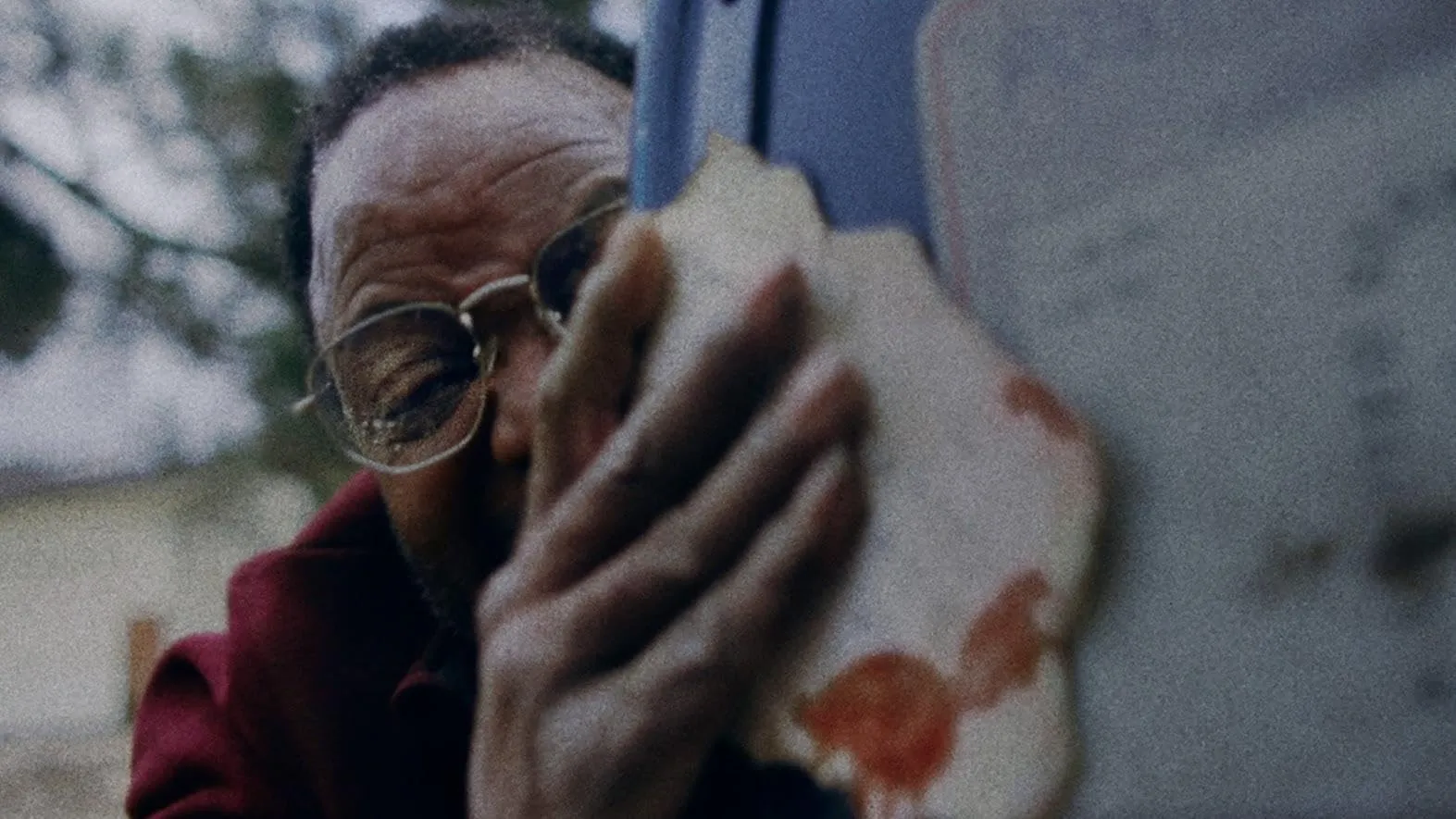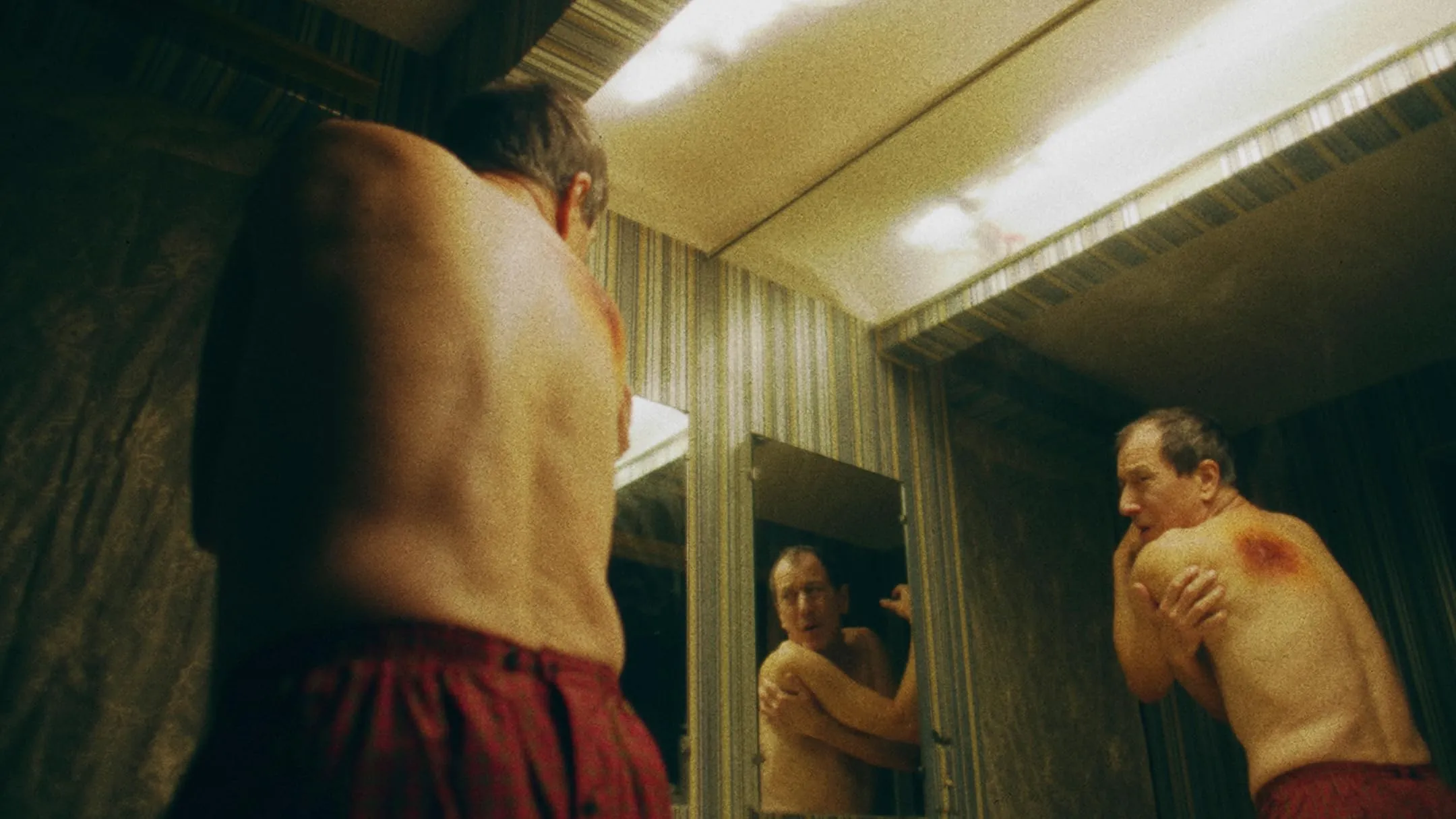The film opens with a striking visual: a blood-stained letter is deposited into a mail slot in a setting that recalls a past era defined by tangible communication and handcrafted clues. From its very first scene, the work introduces a narrative anchored in a local postal environment, where analog techniques form the backbone of an investigation.
The cinematic display of worn paper maps, classic cameras, and letters stamped with care speaks to a period when personal effort was central to unraveling mysteries. This scene serves as a portal that connects the audience with a time marked by its own artistic traditions and everyday practices of information gathering.
The movie adopts a style that respects its cultural origins while reaching out to a global viewership. Its visual storytelling captures a moment when community-driven methods and sentimental values were the norm, offering a look at the way regional practices inform personal identity.
In portraying a meticulous search for meaning through physical evidence, the film raises questions about the lasting impact of local heritage on modern narrative forms. This careful assembly of imagery and character introduces issues of cultural exchange and artistic memory that invite ongoing reflection…
Retro Aesthetics and Cinematography Insights
The film presents a visual world that echoes the tactile charm of past decades, reflecting artistic values that differ across cultures. Its grainy texture and video-tape appearance call to mind recordings that have been stored away for many years. Such an approach not only pays respect to the era it represents but also serves as a visual language that reaches audiences around the globe. The muted colors and use of natural light create a canvas where shadows and textures take center stage, inviting viewers to scrutinize every visual nuance.
The settings are thoughtfully chosen, featuring wood-paneled backrooms in local post offices, modestly furnished home interiors, and specific environments that heighten the sense of historical accuracy. Each scene is packed with relics of a bygone time: classic cameras capturing moments, leather-bound volumes that evoke memories of scholarly pursuits, expansive maps suggesting adventures on paper, and computer monitors with green text that recall early digital experimentation. These production choices speak to an aesthetic influenced by local traditions while resonating with international appreciation for period design.
Camera work intensifies the overall mood; selections such as slanted angles, steady static shots, and moments captured with a handheld device emphasize both suspense and a slightly off-kilter allure. The framing consistently encourages reflection, drawing attention to details like patterned wallpaper and nostalgic furniture that might otherwise fade into the background.
In comparing this film to other works within its cultural framework, one recognizes a respectful avoidance of flashy, contemporary motifs in favor of an immersive experience crafted with deliberate subtlety. The film’s visuals invite endless discussion about how historical influences persist in entertainment, raising thought-provoking questions about the nature of visual storytelling and its place in the global cultural dialogue.
Layered Narratives and Shifting Perspectives
The film begins with a striking image: a man in chains depositing a blood-soaked note at a public mailbox. This opening scene immediately draws viewers into a labyrinth of mystery, setting the stage for a plot that refuses to remain linear. The early focus on a forensic investigation of a peculiar piece of mail shifts rapidly as the narrative expands to encompass the varied histories and personal conflicts of its characters.
The structure quickly moves from a conventional crime scenario to one that interlaces intricate backstories. Through the use of flashbacks, the film reveals how relationships have been shaped by personal ambitions and betrayals. These glimpses into the past serve to build a layered account of connections and disconnections that exist within the community. Each flashback highlights how regional customs and personal ideologies inform decision-making processes that might appear foreign to a global audience.
The storytelling technique is multifaceted, balancing a methodical inquiry with more personal, emotionally charged moments. A notable twist challenges early assumptions about who the central actor should be. As roles evolve, an investigator’s determined search for meaning unexpectedly merges with a partner’s internal conflict stemming from ambition and misinterpreted loyalty. This reshuffling of responsibilities prompts viewers to reconsider their understanding of heroism and guilt.
Secondary plot threads, such as the unraveling of an ill-fated partnership and the evolving dynamics of trust among colleagues, are seamlessly integrated into the main narrative. At various points, the investigative momentum is interrupted by revelations that spotlight the intricacies of human behavior, influenced by local customs and individual histories. The interaction between the methodical approach to solving a mystery and intimate personal struggles raises provocative questions about identity and the effects of technology on cultural memory, leaving open threads for ongoing reflection.
Global Portraits in Character and Performances
Jasper stands as a figure whose dedication and precision anchor the film’s investigation. His methodical nature is evident in every measured action, from the thoughtful examination of aged correspondence to the quiet persistence that guides his search. He emerges as a vessel for personal histories and forgotten narratives, a man who unites meticulous study with an innate curiosity.
His understated determination serves as a bridge connecting the film’s local roots with an appeal that reaches far beyond any single cultural setting. His interactions—with colleagues and with the objects of his investigation—carry a refined dignity, a reminder of how carefully preserved traditions can influence modern approaches to understanding mystery and memory.
Trent, on the other side of the spectrum, is portrayed as a man driven by an all-consuming passion for his craft. His appreciation for synthesizers evolves into a fixation that manifests in dangerous decisions. His portrayal introduces a nuanced spectrum of emotions: a calm eloquence intermingled with flashes of manic intensity and regret. The layers of his character reveal an internal dialogue between refined tastes and destructive impulses. This conflicting nature places him in an ambiguous position, one that invites comparisons to figures from various cultural narratives known for embracing both artistry and turmoil.
Josh represents a blend of inventive spirit and vulnerability. As a synthesizer engineer whose work fuels key developments in the film’s mystery, his creative prowess is set against the physical and emotional pressures inflicted by his circumstances. His struggles evoke a depth that is both personal and reflective of larger societal themes, echoing a search for identity amid rapidly changing technological environments. His experiences resonate on a level that recalls classic narratives of artistic endeavor clashing with harsh realities.
Supporting characters, such as Ann and Bess, contribute significantly to the ensemble. Their practical resourcefulness and nuanced presence provide balance to the film’s more intense central figures. Interactions among the cast reveal a complex network of trust, miscommunication, and unspoken obligations that enrich the narrative texture. The directors’ guidance results in performances that feel honest and carefully tuned to the cultural and historical setting, encouraging a thoughtful examination of relationships and internal conflict that defies simple categorization.
Auditory Landscape and Musical Score
The synthesizer score forms a central part of the film’s sensory experience, serving as an active element that shapes the unfolding drama. Its retro sound infuses the narrative with a tangible reminder of a bygone era, with tonal shifts that reflect the evolving emotional states of key characters.
During moments of suspense, slow and reflective melodies arise, creating a mood that intensifies tension and mirrors the careful pace of the investigation. In contrast, energetic sequences build momentum with a rhythmic pulse that accentuates pivotal plot developments.
Trent’s character finds a distinct musical counterpart, his actions and moods intertwined with tracks that echo both refined taste and underlying turmoil. The sound design incorporates analog synthesizer distortions and background hums that reinforce the film’s connection to its historical setting.
These technical choices in sound editing contribute to an immersive experience, one that connects localized cultural memory with international cinematic traditions. The score not only supports the visual elements but also stands as a narrative force that invites viewers to reconsider the impact of technological evolution on artistic expression and cultural heritage, leaving open questions about the preservation of memory in a modern world.
Symbols of Memory and Passion
The film employs its 1980s setting as a portal into a world where tactile communication and hands-on mystery serve as vital textures of its narrative. The use of dead letters, vintage gadgets, and analog devices calls to mind a past era where everyday life demanded physical engagement. These visual and auditory elements stir recollections of a time marked by deliberate actions and slow, meaningful exchanges.
Trent’s fixation on synthesizers and Josh’s inventive pursuits mark the heart of the film’s examination of human desire and sacrifice. His obsession, expressed through a dedication to recreating soundscapes that mirror his inner turmoil, casts a shadow over the creative brilliance that Josh displays in his work. The film presents beauty with a harsh counterpoint, hinting that creative passion often brings inherent costs, blurring the line between artistic dedication and self-destruction.
Meanwhile, characters within the modest post office ensemble experience a sense of isolation that seems to linger beneath the surface of their community interactions. The tactile nature of their tasks contrasts sharply with today’s digital detachment, using the concept of lost mail as a symbol for connections that, while attempted, remain incomplete. This portrayal prompts viewers to consider the impact of cultural shifts in communication and the loss of a personal touch.
A subtle commentary emerges on society’s attraction to bygone eras. The narrative’s shift from cold investigation to intimate personal drama offers insight into how cherished past experiences can also obscure difficult truths. Such layered storytelling challenges audiences to weigh nostalgia against the realities of human frailty, leaving open questions about memory and longing.
Final Reflections and Lingering Questions
The film captures attention with its expertly rendered retro look, inventive plot twists, and human performances that punctuate every scene. It stands apart through meticulous attention to detail in its recreations of a tactile era—one when handwritten letters and analog tools shaped communication and investigation. The film’s pace shifts dynamically from moments of concentrated suspense to periods of unexpected softness, creating an emotional interplay that mirrors its narrative complexity.
Character arcs connect seamlessly with visual storytelling. A methodical investigator, a troubled music devotee, and an innovative engineer each bring forth distinct personal histories, hinting at deeper cultural currents that inform their behavior.
Their interactions reveal subtle examinations of personal responsibility and the cost of creative pursuits. Even as the investigation weaves through structured clues and fragmented memories, the final scenes tie individual struggles with broader human conditions, leaving audiences pondering unresolved intricacies.
Within the realm of indie horror and neo-noir thrillers, this work offers a fresh perspective—paying homage to a bygone era while engaging modern sensibilities. Viewers are invited to reflect on how past and present merge within each frame, prompting ongoing questions about memory, identity, and the ever-changing nature of storytelling.
Full Credits
Directors: Joe DeBoer, Kyle McConaghy
Writers: Joe DeBoer, Kyle McConaghy
Producers and Executive Producers: Brett Arndt, Zachary Weil, Susan Priver (Executive Producer), Roy Lee (Executive Producer), Steven Schneider (Executive Producer), Adam Goldworm (Executive Producer)
Cast: Sterling Macer Jr., John Fleck, Tomas Boykin, Susan Priver, Micki Jackson, Nick Heyman, Sean Heyman, Aaron Phifer, Michael Cambridge, Micah Fitzgerald
Director of Photography (Cinematographer): Kyle McConaghy
Editor: Kyle McConaghy
Composer: Joe DeBoer, Kyle McConaghy
The Review
Dead Mail
Dead Mail is a layered film that skillfully marries retro aesthetic and a multifaceted narrative with thoughtful character portrayals. It challenges and captivates by provoking reflection on tradition, passion, and memory. Its deliberate visuals and unexpected twists offer a cinematic experience that engages audiences across cultural divides.
PROS
- Authentic retro visual style
- Intricate plot with unexpected twists
- Strong, memorable character portrayals
- Engaging blend of suspense and emotional depth
- Meticulous period detail
CONS
- Occasional pacing issues
- Narrative complexity may challenge some viewers
- Some character arcs feel underdeveloped
- Tone shifts can be jarring at times









































